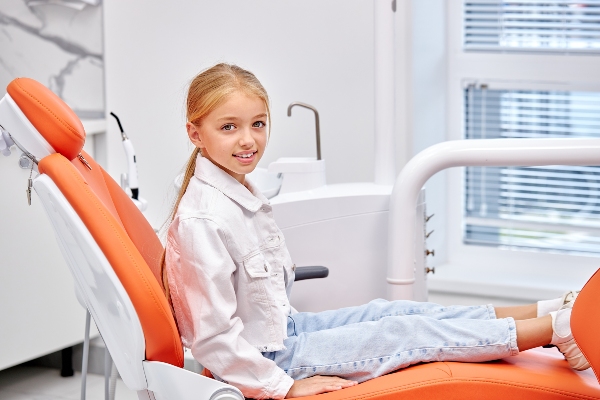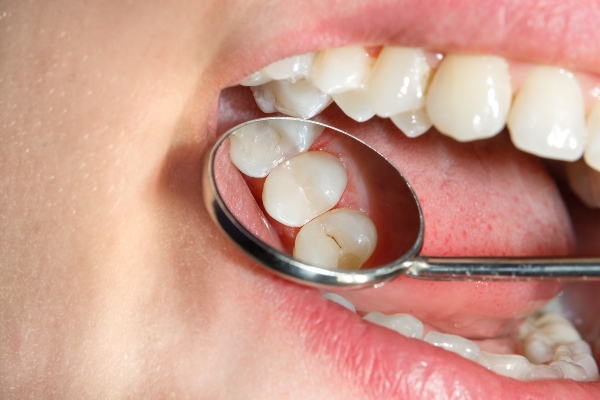7 Reasons Care of Baby Teeth is Important from a Pediatric Dentist

Even though baby teeth are temporary, any pediatric dentist will tell you these teeth are essential to the health and development of your child. Baby teeth serve many purposes for young children, so proper care is important.
Reasons to care for baby teeth
1. Early preparation
The first pediatric dentist appointment is recommended at age 2. Get a head start by helping your kids brush their teeth and develop good routines. Do not forget about other steps like flossing and using mouthwash. Your little ones will be ready for their visit and not even realize how long they have been preparing.
2. Room to grow
Since they are placeholders for adult teeth, baby teeth are essential in helping the mouth grow properly. They stretch out gums and jaws at a natural pace and make room for adult teeth. According to the American Dental Association’s online magazine Mouth Healthy, adult teeth can crowd the space left by a baby tooth that was lost early. This can result in crooked teeth when all adult teeth emerge.
3. Teaching good habits
Children need all the positive reinforcement that they can get when they are learning good habits, especially when it comes to taking care of themselves. Showing children proper tooth brushing methods early on will help prepare them for a lifetime of good oral hygiene. It can be helpful to read themed books and do activities to get kids excited.
4. Squeaky clean
Just like adult teeth, baby teeth can get dirty and can even get cavities. Avoid paying for fillings by showing young ones how to brush away plaque and buildup. Regular care of baby teeth keeps them looking healthy, fresh and clean. Check with the pediatric dentist about age-appropriate toothbrushes and products.
5. Avoiding infection
Children who do not brush their teeth or do not see a pediatric dentist run a higher risk of contracting oral diseases. These can be painful and sometimes infectious, spreading to other parts of the mouth and jaw. Minor dental issues can turn into serious, expensive medical emergencies when left untreated. Keeping your child’s teeth clean can prevent infectious diseases.
6. Better speech
Crooked teeth can cause speech impediments. As baby teeth are replaced with adult teeth, speech habits must adapt. Be sure that the adaptations are the correct ones. Proper speech development is encouraged as adult and baby teeth grow in alignment.
7. Healthy teeth, healthy stomach
Improper chewing can make for an unhappy digestive tract. Kids who have a mouthful of crooked or unhealthy teeth may have a more difficult time grinding food into small, easy-to-digest pieces. Keeping teeth intact and healthy is a way to encourage children to have good eating habits. Using their teeth as a teaching tool, explain the connection between proper chewing and a happy stomach.
Baby teeth are important
While baby teeth will eventually fall out, they play a key role in the development of your child. It does not matter that they are not permanent. Caring for these teeth helps with proper chewing, speaking and forming good hygiene habits. On top of at-home care, be sure to bring your child to a pediatric dentist. Call our office to schedule an appointment.
Request an appointment here: https://www.hvkidsmiles.com or call Hudson Valley Pediatric Dentistry at (845) 363-4177 for an appointment in our Middletown office.
Check out what others are saying about our services on Yelp: Read our Yelp reviews.
Recent Posts
Dental sealants are plastic coatings that are painted over the chewing surfaces of teeth further back in the mouth (molars and premolars). They reduce the risk of cavities. However, protecting the sealants and further reducing your child’s risk of tooth decay also requires limiting the consumption of or avoiding certain foods.The most common foods that…
Tooth decay is one of those dental issues that most people will deal with at some point in their lives. Fortunately, dental sealants are a preventative treatment that can help protect teeth from decay. If you are a parent considering protecting your child’s teeth with sealants, you may be wondering about the process. This article…
If your child has recently gotten dental sealants, it is wise to get a toothbrush that cleans the teeth and does not irritate or damage the sealant. The kind of toothbrush that will remove plaque, reach all regions of your child’s mouth and be best for their oral health depends on their particular dental requirements.…
Dental sealants are a preventive treatment that can greatly benefit young children who have just had their permanent molars come through. Sealants can also benefit children with baby teeth, particularly those vulnerable to decay. The following article discusses the numerous benefits of dental sealants for children.Dental sealants for children reduce the risk of dental decay…


